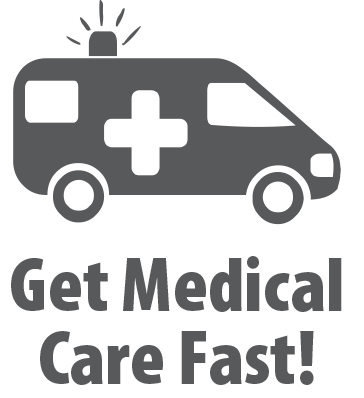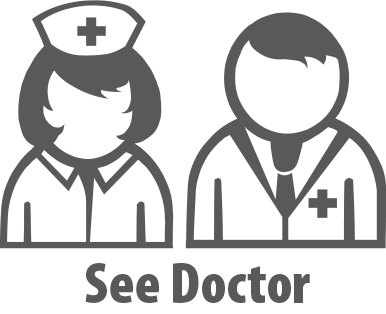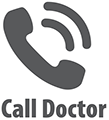Women's Health
Depression
Depression is a state of sadness and despair. Like diabetes, depression is a real medical illness. One-fourth of women have a major bout with depression sometime during their lives.
Signs & Symptoms
• Feeling sad, hopeless, helpless, and/or worthless.
• Fatigue. Loss of interest in life.
• Having a hard time concentrating or making decisions.
• Changes in eating and sleeping patterns.
• Acting very cranky. Anger. Anxiety.
• Thoughts of suicide or death.
The number of symptoms and how severe they are vary from person to person.
Causes
Most likely, depression is caused by a mix of: A family history of the illness; brain chemical problems; emotional issues; and other factors, such as a medical illness or alcohol abuse.
Another cause is seasonal affective disorder (SAD). With this, depression occurs between late fall and early spring due to a lack of natural sunlight.
In some persons, extreme stress, trauma, grief, etc. may bring on depression. In others, depression occurs even when life is going well.
In general, depression is noted twice as often in women than in men due to these reasons:
• Women tend to express their feelings more openly than men. This makes it more likely they will seek treatment for depression.
• Hormonal changes women undergo:
– Premenstrually, during menopause, or when taking medicines with hormones.
– During and especially after childbirth or when a woman stops breast-feeding.
– With health conditions that affect a woman’s hormones, such as some ovarian cysts, endometriosis, etc.
Treatment
Whatever the cause, depression can be treated. Treatment includes medication(s), counseling, and self-care measures. Exposure to bright lights similar to sunlight can treat depression caused by SAD.
A doctor should be seen for diagnosis and treatment.
Questions to Ask
Question
01
Have you just attempted suicide or are you making plans for suicide? Do you have repeated thoughts of suicide or death?

Get medical care without delay. If symptoms are life threatening go to the ER or call 9-1-1. Don’t call 9-1-1 or use the ER if symptoms do not threaten life. Ask your doctor ahead of time where you should go for a problem that needs prompt care, but not emergency care.
x
Question
02
Have you had a lot less interest or pleasure in almost all activities most of the day, nearly every day for at least 2 weeks?

You should be seen by your doctor for medical advice. Contact your doctor or health care provider to find out how soon you should be seen.
x
Question
03
Have you been in a depressed mood most of the day, nearly every day, and had any of these problems for at least 2 weeks?
• Feeling hopeless, worthless, or guilty, slowed down, or restless. Changes in appetite or weight.
• Thoughts of death or suicide. Problems concentrating, thinking, remembering, or making decisions. Feeling tired all of the time. Trouble sleeping or sleeping too much.
• Stomach or sexual problems. Feeling anxious or worried.

You should be seen by your doctor for medical advice. Contact your doctor or health care provider to find out how soon you should be seen.
x
Question
04
Do you feel depressed and did you have depression in the past that was not treated or do you have a close relative with a history of depression? Were you treated for depression in the past and has it returned?

You should be seen by your doctor for medical advice. Contact your doctor or health care provider to find out how soon you should be seen.
x
Question
05
Has the depression occurred with any of the following?
• Recent delivery of a baby. The days between ovulation and menstruation (every month).
• A medical problem. Taking medicines. (This includes antidepressants.)
• Dark, cloudy weather or winter months.
• Abusing alcohol or drugs.

Call your doctor or health care provider and state the problem. He or she can decide what you should do.
x
Self-Care / Prevention
• Take medications as prescribed. Get your doctor’s advice before you take over-the-counter herbs, such as St. John’s Wort, especially if you take other medications.
• Don’t use illegal drugs. Limit alcohol. These can cause or worsen depression. Drugs and alcohol can also make medicines for depression less effective. Harmful side effects can happen when alcohol and/or drugs are mixed with medicine.
• Eat healthy foods. Eat at regular times. Don’t skip meals or binge on junk food. Limit caffeine and sugary foods.
• Exercise regularly.
• Try not to isolate yourself. Be with people you feel safe with even though you feel down.
• Do something you enjoy. Do things that let you express yourself. Write, paint, etc.
• Relax. Listen to soft music, take a warm bath or shower. Do relaxation exercises.
• Keep an emergency number handy (e.g., crisis hotline, trusted friend’s number, etc.) in case you feel desperate.
Resources
Mental Health America (MHA)
800.969.6642

Download an offline pdf file.
RELATED ARTICLES
<
>
2021 © American Institute for Preventive Medicine - All Rights Reserved. Disclaimer | www.HealthyLife.com








